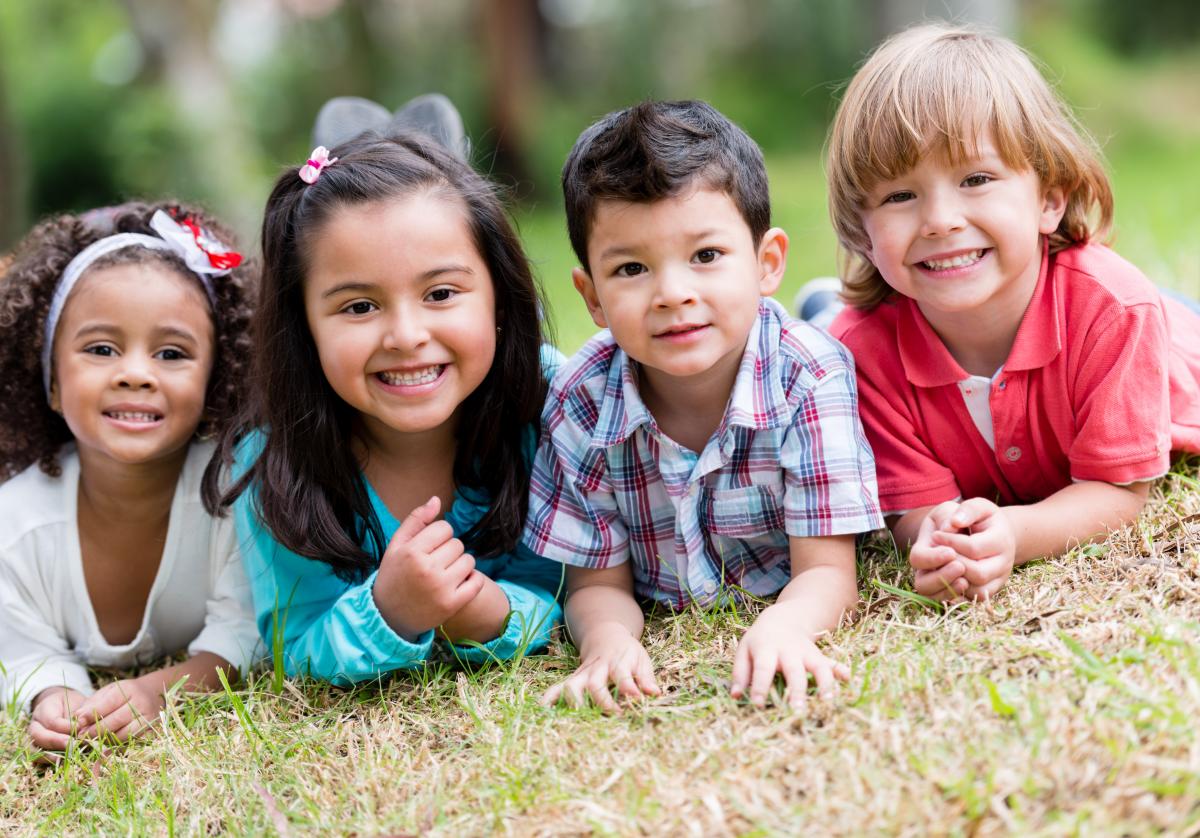Discovering that your child is losing hair can be a truly unsettling experience for any parent, can't it? That, is that, a little bit of hair on the pillow or a noticeable thin spot can spark a wave of worry, understandably. You might feel a rush of questions, wondering what's happening and if everything is alright with your little one. It's a very common reaction, and you're certainly not alone in feeling this way, you know.
It's important to remember, actually, that hair loss in children, while perhaps not as common as in adults, is far from unheard of. Many parents face this concern, and the good news, generally, is that it's often a treatable condition. This situation, you see, usually has clear reasons behind it, and understanding those reasons is the first step toward finding solutions for healthy regrowth.
This article will help you get a clearer picture of what might be going on if your child is experiencing hair loss. We'll explore some of the common causes, discuss what symptoms to look out for, and, perhaps most importantly, talk about the steps you can take to help your child. We'll also touch upon ways to support children dealing with medical hair loss, in a way, through hair donation.
- Unveiling Tyler The Creators Height How Tall Is Tyler
- Is Enuka Okuma Married Uncover Her Marital Status And Workin Moms Role
- Ulta 21 Days Of Beauty 2025
- New Mexico Military Institute
- Unveiling Natalie Imbruglias Family Legacy The Influence Of Elliot And Maxene
Table of Contents
- Common Causes of Hair Loss in Children
- Recognizing the Signs: Symptoms of Hair Loss in Kids
- What to Do When You Notice Hair Loss
- Supporting Your Child Through Hair Loss
- Giving the Gift of Hair: Supporting Children with Medical Hair Loss
- Frequently Asked Questions About Children's Hair Loss
Common Causes of Hair Loss in Children
When we talk about hair loss in children, you might be surprised to learn there's a variety of reasons it can happen, actually. It's not just one thing, you see, but several different conditions that might lead to a child losing their hair. WebMD, for instance, often looks at these various causes and their treatments, giving parents a place to start learning, so.
One very common reason, for example, is a fungal infection known as tinea capitis. This condition, which is basically a scalp infection, can lead to patches of hair loss. It's something that, honestly, many kids might pick up, and it's certainly one of the first things a doctor might consider when seeing a child with hair loss, you know.
Then there's alopecia areata, which is another significant cause, apparently. This is an autoimmune condition where the body's own immune system mistakenly attacks the hair follicles. It can lead to sudden hair loss, often in round or oval patches, and it's a condition that, in some respects, can be quite surprising when it first appears, you see.
- Kristy Swanson The Vampire Slayer Star Who Inspired A Generation
- University Of North Carolina Greensboro
- Portable Air Conditioner Costco
- Kaci Stewart Shaul Obituary Native Of Hillsboro
- Top Tier Solar Solutions
Telogen effluvium is yet another cause that often comes up. This happens when a significant number of hairs enter the resting phase of the hair growth cycle too early, leading to widespread thinning or shedding. It's often triggered by a stressful event, perhaps a high fever, a severe illness, or even a big emotional shock, so it's a bit of a reaction to something else, you know.
Trichotillomania, in a way, is a different kind of cause altogether. This is a condition where a child repeatedly pulls out their own hair. It's a behavioral issue, you see, and the hair loss typically appears in irregular patches where the pulling occurs. It's something that, quite often, requires a gentle approach and support to help the child stop the habit, really.
Beyond these specific conditions, hair loss in children can also be connected to broader issues. Stress, for instance, can play a part, as can other infections. Sometimes, too, underlying autoimmune conditions can be a factor, leading to solutions that focus on healthy regrowth once the root cause is addressed, which is certainly good news, you know.
Recognizing the Signs: Symptoms of Hair Loss in Kids
Spotting hair loss in your child often begins with noticing something a little different about their hair or scalp, doesn't it? The symptoms can vary, of course, depending on what's causing the hair to fall out, but there are some common things to look for. Early detection, as a matter of fact, can make a real difference in how quickly and effectively the problem can be addressed, you know.
One of the most apparent signs, typically, is sudden hair loss. This might manifest as hair coming out in clumps when brushing, or you might just notice more hair than usual on their pillow or clothes. It can be quite startling to see, really, especially if it seems to happen without any obvious reason, you know.
Another common symptom, very often, is the appearance of bald patches on the scalp. These patches can be round, irregular, or even develop in specific areas. Sometimes, too, the skin within these patches might look a bit different, perhaps scaly or red, depending on the underlying cause, you see.
In some cases, you might even notice changes in the texture or color of the remaining hair, apparently. The hair that's left might become brittle, dull, or just feel different to the touch. These subtle changes, while perhaps not as dramatic as bald spots, can also be important clues for a doctor, so it's good to keep an eye out for them, you know.
What to Do When You Notice Hair Loss
If you start to notice even the slightest amount of hair loss in your child, the American Hair Loss Association (AHLA) strongly suggests seeking advice from your pediatrician as soon as you can, you know. This is a very important first step because early detection and intervention can truly make a big difference in the outcome, honestly.
Your pediatrician, for example, is the best person to evaluate the situation. They can help figure out why the hair loss is happening and guide you toward the right treatment. They might do some tests or refer you to a specialist, like a dermatologist, who specializes in skin and hair conditions, you see.
Once you have a clearer idea of the cause, it's really important to talk to your child about it, too. Explain to your child why the hair loss happened and how you plan to fix the problem. This open conversation can help ease their worries and make them feel more secure, you know.
If the hair loss is the result of a treatable disease, which is often the case, you can explain that their hair will grow back. This kind of reassurance is so vital for a child, really. Knowing that there's a plan and that their hair might return can alleviate a lot of anxiety for them, you know.
Learning about common causes like infections, stress, or autoimmune conditions helps, and exploring solutions for healthy regrowth is key. Your doctor will provide the best solutions, of course, but being informed helps you ask the right questions, you see. It's about being proactive and supportive through the whole process, really.
Supporting Your Child Through Hair Loss
It can be quite upsetting for both parents and children when hair loss occurs, can't it? Children, especially, might feel self-conscious or different from their friends, which is perfectly natural. Providing strong emotional support is, therefore, just as important as seeking medical treatment, you know.
Talk to your child openly and honestly about their feelings. Let them know it's okay to feel sad, angry, or confused. Reassure them that you are there for them, no matter what, and that their hair does not define who they are, you see. This kind of unconditional support can make a huge difference in how they cope, really.
Encourage them to continue with their normal activities and hobbies. Maintaining a sense of routine and normalcy can help them feel more secure and less focused on their hair loss. It's about helping them understand that, in a way, they are still the same wonderful person, just with a different look for now, you know.
Sometimes, connecting with other families who have experienced similar situations can be incredibly helpful. Support groups or online communities can provide a safe space for sharing experiences and getting practical advice. Knowing they're not alone in this, apparently, can be a powerful source of comfort for both children and parents, you see.
Giving the Gift of Hair: Supporting Children with Medical Hair Loss
While many causes of hair loss in children are treatable, some children experience medical hair loss due to ongoing conditions or treatments, like chemotherapy, that prevent their hair from growing back naturally. For these children, wigs can provide a sense of normalcy and confidence, which is truly invaluable, you know.
This is where the kindness of others can make a huge impact. Ready to donate your hair? Sending your clean and dry hair to organizations that create wigs for children with hair loss can give the gift of a full head of hair to a child with medical hair loss, you see. It's a beautiful way to help, really.
These organizations are proud to receive generous donations from people who want to make a difference. The hair is then carefully crafted into wigs that look natural and feel comfortable, providing a boost of self-esteem to children who are already facing significant challenges, you know.
It's a tangible way to show support and compassion, offering a child a chance to feel more like themselves during a difficult time. If you or someone you know has long, healthy hair, considering a donation is a truly wonderful gesture that can bring a lot of joy, you see. Learn more about hair donation programs on our site.
Frequently Asked Questions About Children's Hair Loss
What are the common causes of hair loss in children?
Hair loss in children isn't uncommon, and the causes vary. Common culprits include fungal infections like tinea capitis, autoimmune conditions such as alopecia areata, temporary shedding from stress or illness called telogen effluvium, and even hair pulling, which is known as trichotillomania, you know. Sometimes, too, other infections or underlying health issues can play a part, you see.
When should I take my child to see a doctor for hair loss?
If you notice even the slightest amount of hair loss in your child, it's really recommended to seek the advice of your pediatrician as soon as possible, you know. Early detection and intervention can make a big difference. Your doctor can help figure out the cause and guide you toward the right treatment, which is certainly important, you see.
Will my child's hair grow back after hair loss?
Often, yes, it will. If the hair loss is the result of a treatable disease, like a fungal infection or stress-related shedding, then their hair will typically grow back, you know. For conditions like alopecia areata, the regrowth can be unpredictable but often happens. Your doctor can give you the best prognosis based on the specific cause, you see. It's a hopeful situation, usually.
In conclusion, seeing your child lose hair can be a worrying time, but it's important to remember that it's often a treatable condition with many possible causes. Taking prompt action by consulting a pediatrician is the best first step, as early detection and intervention can truly make a difference. Openly discussing the situation with your child and offering them reassurance is also vital for their emotional well-being. Furthermore, if you're looking for a way to help other children facing medical hair loss, consider donating hair to organizations that provide wigs. To explore more about hair health and support, you can also check out this page .
For further information on children's health, a reliable resource is WebMD's section on hair loss in children.
Related Resources:



Detail Author:
- Name : Velda Hodkiewicz
- Username : pupton
- Email : myundt@yahoo.com
- Birthdate : 1972-04-09
- Address : 396 Rice Locks Port Jaren, AK 27769
- Phone : 469.702.1765
- Company : Witting Group
- Job : Clerk
- Bio : Velit vero labore et enim amet dolores architecto et. Incidunt nisi sunt voluptatibus eius excepturi aliquid. Quos cupiditate et ut occaecati rerum aut. Est ducimus amet possimus voluptate.
Socials
facebook:
- url : https://facebook.com/adellaltenwerth
- username : adellaltenwerth
- bio : Ad assumenda temporibus sit assumenda ipsum exercitationem sequi.
- followers : 863
- following : 1088
twitter:
- url : https://twitter.com/adell_real
- username : adell_real
- bio : Quia dignissimos omnis sed omnis. Consequatur omnis rerum eum dolor minima earum. Aut impedit corrupti consequatur est. Et nulla similique amet unde qui.
- followers : 2339
- following : 1046
linkedin:
- url : https://linkedin.com/in/adell_altenwerth
- username : adell_altenwerth
- bio : Expedita sunt fugiat rerum quaerat.
- followers : 3274
- following : 1063
tiktok:
- url : https://tiktok.com/@altenwertha
- username : altenwertha
- bio : Labore quo libero dolores. Aliquam dolor voluptates labore rerum.
- followers : 5852
- following : 401
instagram:
- url : https://instagram.com/adellaltenwerth
- username : adellaltenwerth
- bio : Id eligendi quia non quo cum. Earum mollitia quis corrupti perferendis. Dolor id vitae et et quia.
- followers : 3979
- following : 2889